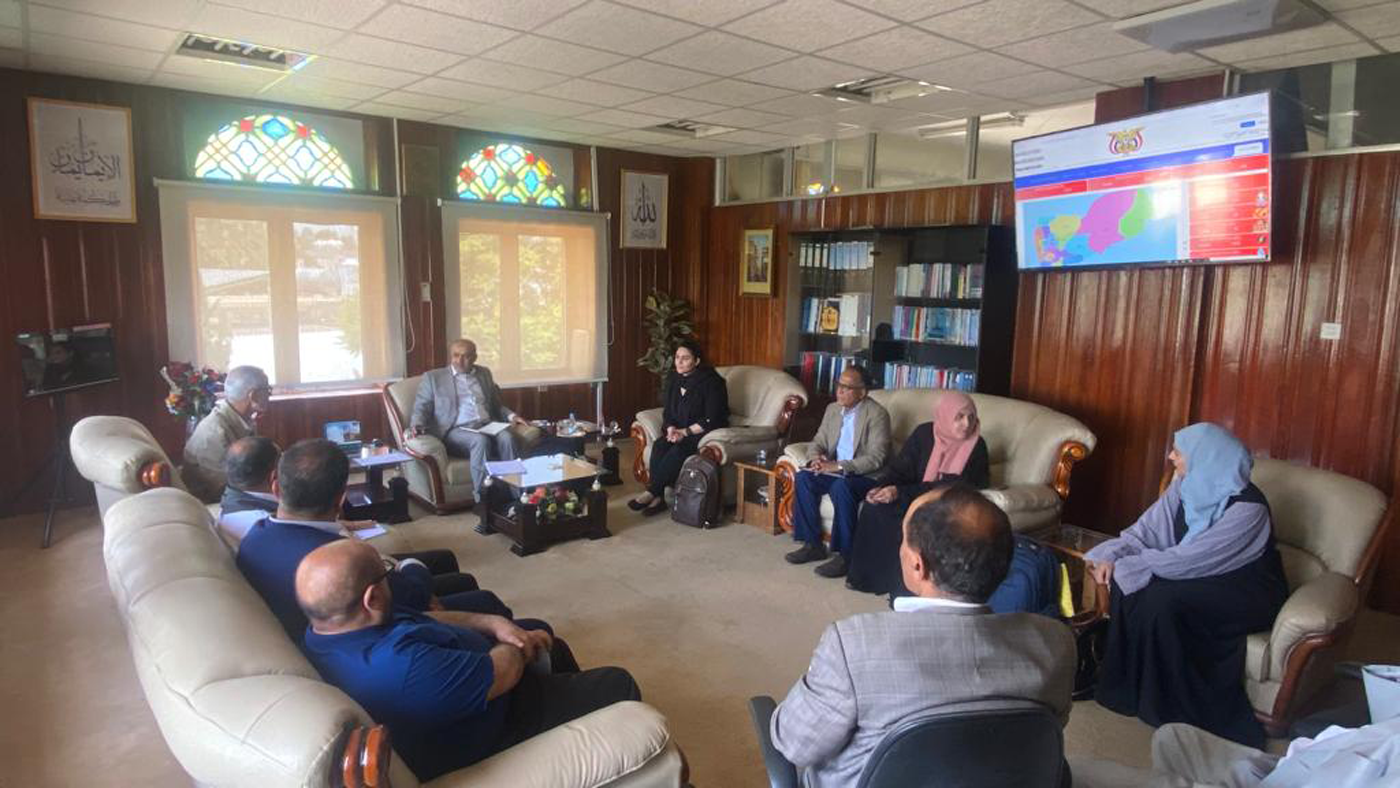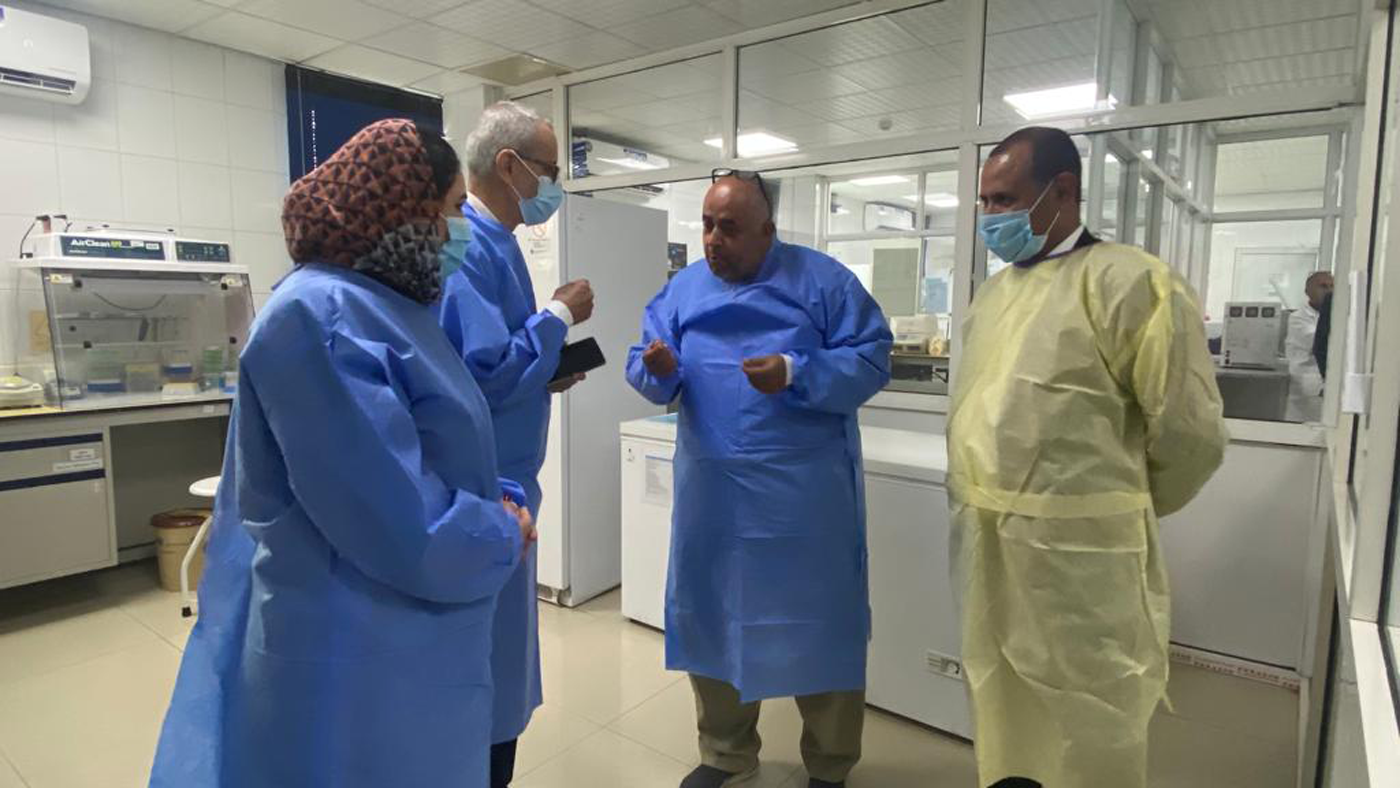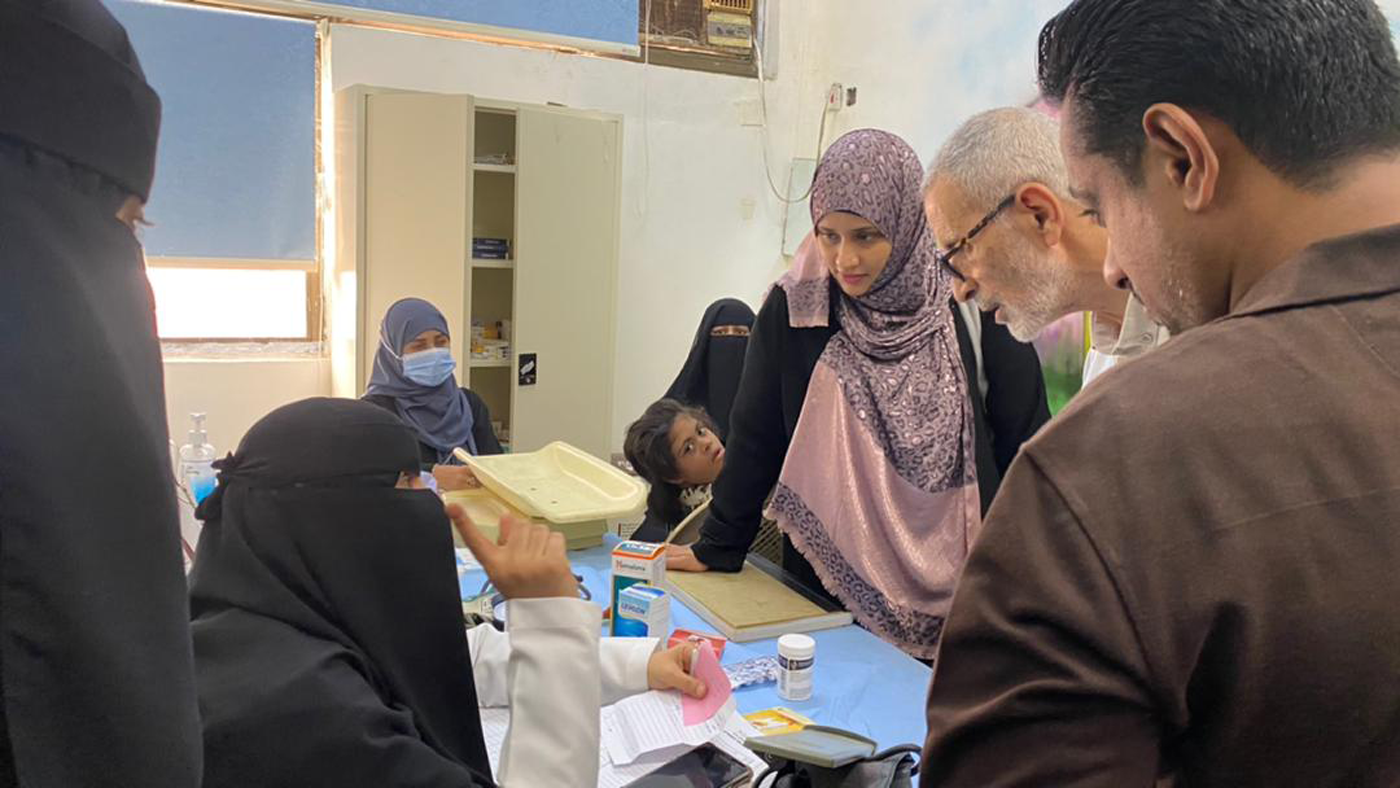 A consultative meeting between WHO and Yemen’s Ministry of Health and Population, Sana’a
A consultative meeting between WHO and Yemen’s Ministry of Health and Population, Sana’a
Cairo, 1 November 2022 – The Infectious Hazard Prevention and Preparedness programme at the WHO Regional Office for the Eastern Mediterranean recently deployed an expert to Yemen to support strengthening surveillance for influenza and respiratory pathogens.
As the influenza season has already started, influenza surveillance systems in countries will be alerted of cases and the availability of diagnostic capacity at national laboratories ensured. Despite low activity in the past 2 years, it is expected that there will be an increase in the number of influenza cases.
The expert who was deployed, with the support of Pandemic Influenza Preparedness (PIP) Framework resources, worked with the Ministry of Health and Population in Aden and Sana’a and the WHO country office to identify the challenges and explore ways to sustain the reactivation of the sentinel influenza surveillance system while considering the integration of severe acute respiratory coronavirus 2 (SARS-COV-2) in the meantime and integrating other respiratory pathogens of epidemic and pandemic potential in the future.
 A visit to a laboratory in Sana'a, Yemen
A visit to a laboratory in Sana'a, Yemen
Consultative and advocacy meetings were conducted with policy-makers and technical staff at the Ministry. In addition, field visits to the Central Public Health Laboratory in Aden and the National Influenza Centre in Sana’a, as well as to sentinel sites, were conducted.
During the field visits, hands-on training was organized to standardize and upgrade the standard operating procedures (SOPs) for severe acute respiratory infection (SARI) and influenza-like illness (ILI) case enrolment, data and specimen collection, data flow, as well as specimen handling and transfer.
eIDEWS, the early warning platform used in Yemen to capture a list of communicable diseases, was presented by the Ministry team. Together with the expert they extracted influenza SARI and ILI data from eIDEWS to feed into WHO platforms.
Data sharing through WHO’s global and regional influenza reporting platforms, the Eastern Mediterranean Flu (EMFLU) and FluMart, was highlighted throughout consultative meetings with Ministry teams. A training workshop on developing and updating the national influenza surveillance protocol and SOPs was also conducted with Ministry of Health and Population surveillance staff.
 Discussion during a visit to a sentinel surveillance site, Aden
Discussion during a visit to a sentinel surveillance site, Aden
Way forward
Efforts to standardize the national protocol and SOPs in both Aden and Sana’a is under way in an attempt to unify the country’s influenza response and preparedness. With the support of WHO country and regional offices, Ministry teams in both cities will ensure the effective functioning of the surveillance system. With proper implementation of the integration of influenza and other respiratory viruses, the influenza sentinel surveillance system can serve to establish seasonal baselines for other respiratory viruses and detect unusual and expected events over time.
Effective sentinel surveillance is vital for pandemic preparedness as it provides systematic, accurate and timely information that is necessary for effective response measures. The Regional Office will continue to support countries of the Region to strengthen influenza surveillance systems, including Yemen. As a country in conflict and experiencing a humanitarian crisis, Yemen is facing several public health emergencies. Consequently, WHO works closely with the Ministry of Health and Population to strengthen its influenza preparedness and response plans.
Related links
Yemen-Oman twinning project to enhance critical care and save lives
Yemeni women at the forefront of the COVID-19 response


